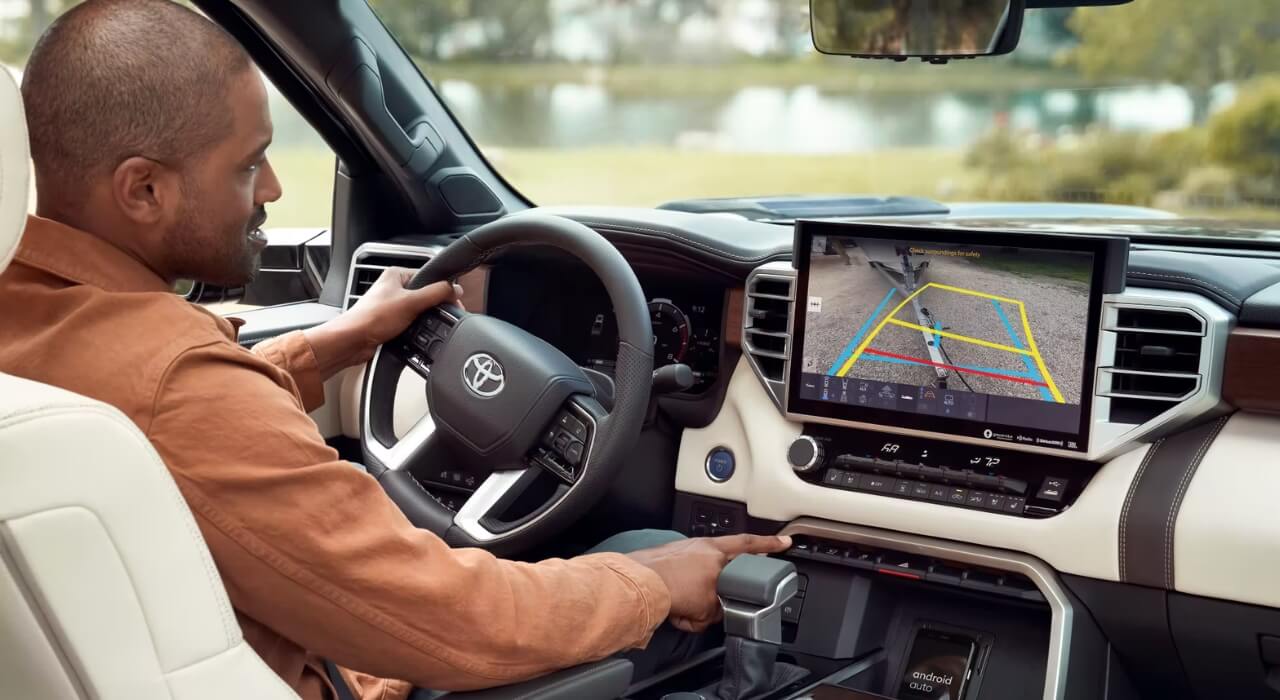Modern technology has brought a plethora of innovative solutions that have significantly improved our lives. One such technological marvel is a Global Positioning System (GPS). Initially, GPS was primarily used for navigation and location purposes.
But with advancements, it has evolved into a beneficial tool in many industries, particularly in transportation. The advent of GPS trackers has revolutionized the way we monitor and ensure vehicle safety.
GPS tracking is a method of finding the geographical location of a vehicle using a GPS tracking device. This device uses the Global Navigation Satellite System (GNSS) network to obtain the vehicle’s data in real-time or for later use. But, how does this work? How do these GPS trackers contribute to enhancing vehicle safety? Let’s delve into the details.
Understanding How GPS Trackers Work?
A GPS tracker is a clever piece of technology. It uses the Global Navigation Satellite System (GNSS) network, which incorporates a range of satellites that use microwave signals transmitted to GPS devices to provide information on location, vehicle speed, time and direction. So, the GPS tracking device receives the information and then provides real-time tracking data.
GPS trackers for cars are equipped with a GPS module, which receives signals from satellites. Once the GPS tracking device for the car receives the signals, it processes the data to understand the exact location of the vehicle. This information is then logged and stored within the tracking unit and then usually transmitted over a network to a database, after which the data can be accessed on devices like computers, tablets, and smartphones.
GPS tracking technology is not just about providing location information. It also offers multiple functionalities like geofencing, alerts for different types of events, and historical data about the vehicle’s trips. Notably, GPS tracking is an invaluable tool when it comes to ensuring vehicle safety.
Importance of GPS Trackers for Vehicle Safety
The indispensable role of GPS trackers in boosting vehicle safety cannot be overstated. One of the primary benefits of a GPS car tracking device is that it allows you to monitor your vehicle’s whereabouts in real-time. This is particularly helpful in situations where the car is stolen, as tracking the stolen vehicle becomes significantly easier.
In addition to tracking a car’s location, some advanced GPS trackers also monitor the car’s speed. This feature is especially beneficial for parents with teenage children. They can set a speed limit on the GPS tracking device, and whenever the vehicle exceeds the limit, an alert is sent to the parent’s phone.
Furthermore, GPS trackers play a crucial role in managing fleet vehicles. From tracking the routes taken by the drivers to ensuring that the vehicles are properly maintained, GPS trackers have become indispensable tools in fleet management.
Types of GPS Trackers for Cars
GPS trackers for cars come in various types, each with its unique features and benefits. Some of the most common types include hardwired trackers, OBD trackers, and Plug & Play trackers. Hardwired trackers are installed in the car’s wiring system and are usually hidden from sight. They provide a continuous power supply and are very reliable.
On the other hand, OBD (On-Board Diagnostic) trackers are plugged into the OBD port of the vehicle. These trackers are easy to install and provide detailed reports on the vehicle’s health. Lastly, Plug & Play trackers are portable devices that can be moved from one vehicle to another. They are easy to use and install, making them a popular choice for many users.
How to Choose the Best GPS Tracker for Your Car
Choosing the best GPS tracker for your car can be a daunting task, given the numerous options available in the market. The first step towards making an informed decision is understanding your specific needs. Do you need a GPS tracker for personal use, or is it for managing a fleet of vehicles?
Next, consider the features offered by the GPS tracking device. Some devices offer basic features like real-time tracking, while others offer advanced features like geofencing, speed alerts, and more. Also, consider the installation process. Some GPS trackers are easy to install, while others may require professional installation.
Suggestion: How to Use Bath and Body Works Car Freshener?
Lastly, consider the cost of the GPS tracker. GPS tracking devices vary in price, depending on the features they offer. Make sure to choose a device that fits your budget, without compromising on the essential features.
Installation and Use of GPS Tracking Devices for Cars
Installing a GPS tracking device in your car is usually a straightforward process. However, the installation process may vary depending on the type of GPS tracker you have. Some GPS trackers need to be connected to the car’s power source, while others are battery-operated and can be placed anywhere in the car.
Once the GPS tracker is installed, you can start using it to track your car. Most GPS trackers come with a user-friendly mobile app or web platform. You can use this platform to monitor your car’s location in real-time, set geofences, and receive alerts.
Preventive Measures: How GPS Trackers Enhance Car Safety
GPS trackers enhance car safety in several ways. Firstly, they provide real-time location tracking. This feature is particularly useful in case of theft, as it allows you to track your car’s location and recover it quickly.
Secondly, GPS trackers can help you monitor driver behavior. By tracking driving patterns, you can identify any dangerous habits like speeding or harsh braking and take corrective measures. Some GPS trackers also come with a panic button. In case of an emergency, the driver can press this button to send an alert to a predetermined contact.
Lastly, GPS trackers can also help in case of an accident. Some advanced trackers come with crash detection technology. In the event of a crash, the tracker sends an alert with the car’s location to a predetermined contact. This feature can help emergency services reach the accident scene quickly.
Real-time Tracking: The Role of GPS in Fleet Management
Real-time tracking is one of the most important features of GPS trackers, particularly in fleet management. With real-time tracking, fleet managers can monitor the location of all their vehicles at any given time. This feature can help prevent unauthorized use of vehicles and reduce fuel consumption by identifying inefficient routes.
Also Read: Best Cameras For Car Photography
Moreover, real-time tracking allows for effective dispatching. Fleet managers can use real-time location data to dispatch the closest vehicle to a job site, thereby increasing efficiency and customer satisfaction. Also, with real-time tracking, you can provide accurate delivery times to your customers.
Law and Privacy: The Legal Aspect of Using GPS Tracking Devices in Vehicles
While GPS tracking devices can significantly enhance vehicle safety, their use does raise some legal and privacy concerns. In most regions, it’s legal for vehicle owners to use GPS trackers to monitor their own vehicles. However, using a GPS tracker without the knowledge or consent of the driver may be considered an invasion of privacy.
In the context of fleet management, employers generally have the right to use GPS trackers to monitor vehicles owned by the business. However, it’s important to inform employees about the GPS trackers and how they’re being used. Furthermore, it’s crucial to use the GPS tracking data responsibly and only for the intended purpose.
Future of GPS Tracking and Vehicle Safety
With advancements in technology, the future of GPS tracking and vehicle safety looks promising. We are likely to see more advanced features like predictive analytics, which can predict potential vehicle issues based on historical data. Also, the integration of GPS tracking with other technologies like artificial intelligence and machine learning will further enhance vehicle safety.
Moreover, as the legal and regulatory framework around the use of GPS trackers evolves, we can expect more robust privacy protection measures. This will not only protect the rights of individuals but also fuel the wider adoption of GPS-tracking technology.
Conclusion
In conclusion, GPS trackers play an indispensable role in enhancing vehicle safety. From providing real-time location data to monitoring driver behavior, the benefits of GPS trackers are immense. While choosing the best GPS tracker for your car may require some research, the peace of mind and security it offers makes it worth the effort. As we look to the future, advancements in GPS tracking technology are likely to further boost vehicle safety.

















